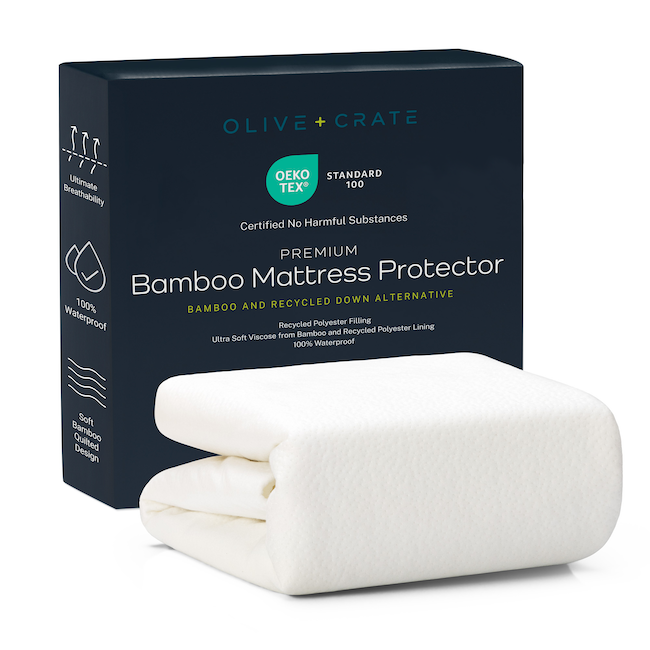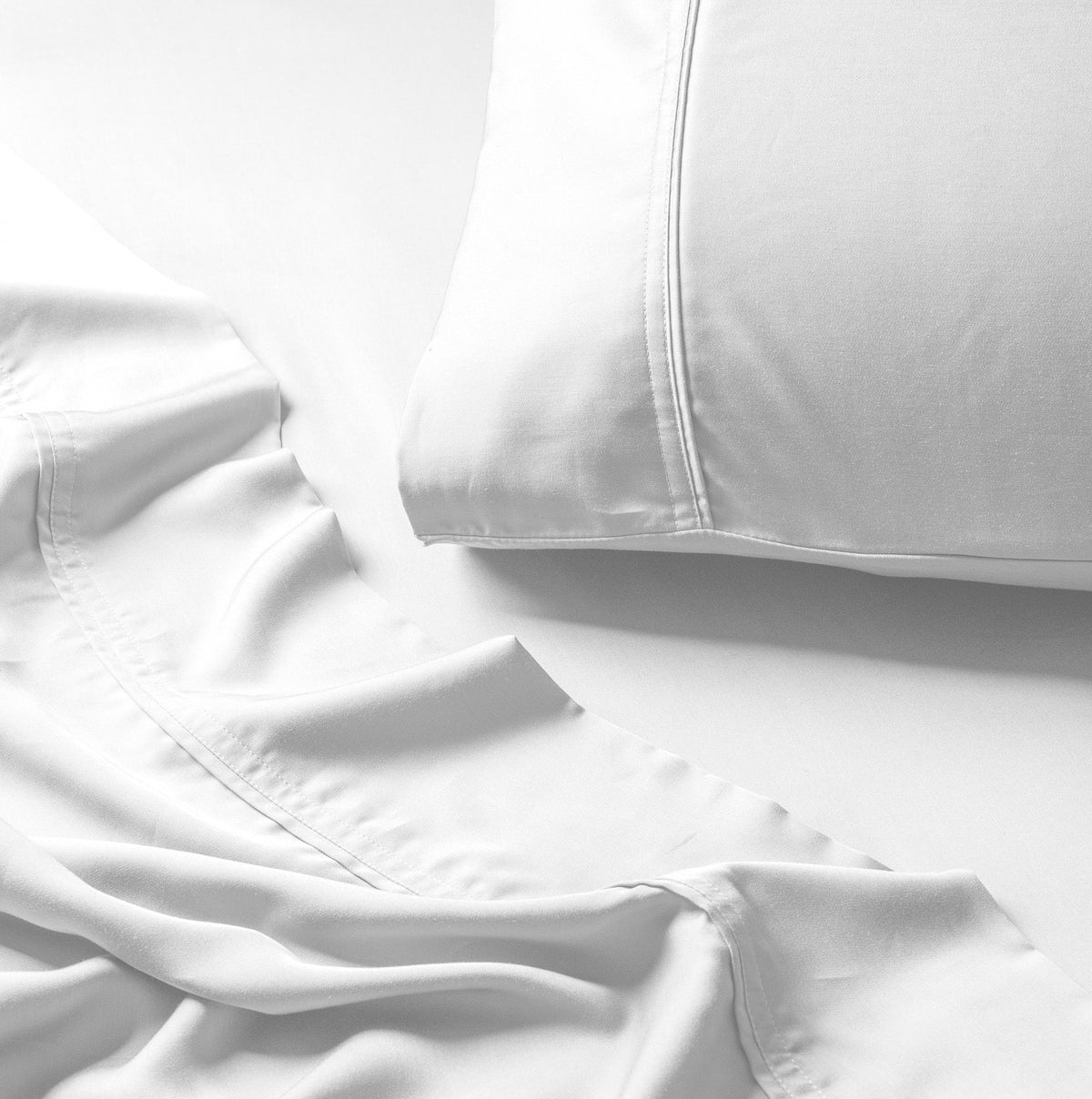There’s nothing better than slipping into clean, freshly washed sheets. Regular care keeps your bed comfortable and your sleep environment healthy, though how often you wash depends on the season and your routine.
Why Bedding Care Matters
Each night, your sheets naturally collect sweat, body oils, skin cells, and dust particles. Left unwashed, these build-ups can compromise comfort and even affect health.
Common issues include:
-
Irritation or skin rash from dirty sheets
-
Aggravated allergies, asthma, or eczema
-
Odors and visible stains
-
Disrupted sleep quality from discomfort
Dust mites thrive in warm, damp bedding, which makes consistent laundering important alongside the use of thoughtful dust mite bedding.
The Golden Rule
For most households, once a week is the safest and healthiest frequency for washing sheets. This routine removes sweat, body oils, and allergens before they build up, while also extending the life of your bedding.
From there, adjust based on the following factors:
-
Every 3–4 days: if you have severe allergies, asthma, eczema, or night sweats.
-
Every 5–7 days: if you sleep with pets, live in a hot or humid climate, or are prone to acne.
-
Every 10–14 days: in cooler, drier months if you live alone, shower at night, and rarely sweat.
Seasonal Care: Practical Recommendations
Spring: Allergy Season
Spring is a high-pollen season, and sheets act like magnets for allergens. Washing them weekly, and changing pillowcases every few days, helps keep sneezing and congestion at bay.
-
Wash frequency: once a week minimum, twice if you’re sensitive.
-
Why: pollen and dust mites accumulate quickly in warmer weather.
-
Extra tip: swap pillowcases every 2–3 days to prevent congestion and itchy eyes. See more on nighttime allergy relief.
Summer: Heat and Humidity
Summer demands the most vigilance. Heat and humidity create the perfect environment for bacteria, and sweat is quickly absorbed into fabric.
-
Wash frequency: once a week for most; every 3–4 days if you sweat heavily.
-
Why: high humidity and body oils create the perfect breeding ground for bacteria and odors.
-
Extra tip: rotate two sheet sets so you always have a fresh one ready. Use breathable fabrics such as eucalyptus bedding to stay cooler between washes.
Autumn: Transition Season
As nights cool and air dries, sheets collect less perspiration but still gather oils and everyday dust. This season feels gentler, yet bedding still benefits from consistent care.
-
Wash frequency: every 7–10 days.
-
Why: perspiration decreases but natural oils and dirt still accumulate.
-
Extra tip: add a lightweight mattress protector to reduce allergens and extend sheet freshness.
Winter: Cold and Dry Months
Winter often encourages longer stretches between washes, with less sweat absorbed into bedding. But with the cold and flu season in full swing, illness can quickly change the routine.
-
Wash frequency: every 10–14 days if you’re healthy and don’t share your bed.
-
Why: less sweating in cooler air, but bacteria from illness can linger.
-
Extra tip: if anyone in the household is sick, always wash bedding immediately to prevent reinfection.
Special Situations That Change the Rules
Most households do well with a weekly wash, but some circumstances call for more care:
-
Pets in bed – Fur, dander, and dirt settle deep into fabric. If pets sleep with you, expect to launder sheets more often to keep allergens down.
-
Skin concerns – Acne, eczema, or sensitive skin benefit from fresher sheets. More frequent changes reduce irritants, especially when paired with fabrics designed for eczema.
-
Illness – Viruses and bacteria can linger in bedding. Wash sheets promptly after fevers or colds to prevent reinfection or spread.
-
Humid climates – In tropical or coastal regions, moisture accelerates bacterial growth. A “summer schedule” of frequent washing often applies year-round.
How to Wash Sheets Properly
Knowing how often to wash is only half the equation; the way you care for your sheets determines how clean, soft, and long-lasting they remain.
-
Water temperature – For cotton, use hot water (60°C / 140°F) to kill dust mites and remove oils. For eucalyptus, bamboo, or silk blends, stick to 30–40°C (85–105°F) to preserve fibers and softness, as with washing and caring for eucalyptus sheets.
-
Detergent – Use 1–2 tablespoons of a mild, liquid detergent. Powder detergents can leave residue, and strong fragrances may irritate sensitive skin.
-
Drying – Line dry in sunlight whenever possible (UV light naturally disinfects). If using a dryer, choose a low-heat setting to prevent shrinkage and fiber damage. Sheets should be fully dry before folding or remaking the bed.
-
Ironing or steaming – A quick steam or low-heat iron not only smooths fabric but also helps kill lingering bacteria or dust mites.
-
Rotation – Keep 2–3 sheet sets in rotation. Options like TENCEL™ Eucalyptus sheets make a weekly or bi-weekly schedule easier to maintain.
The Bottom Line
So, how often do you need to wash your sheets? Once a week is the healthiest standard.
Adjust slightly with the seasons - more often in hot or humid weather, less often in cool, dry months. Illness, pets, and skin sensitivities may require extra care, but a steady routine is the key to fresher bedding and better sleep.












